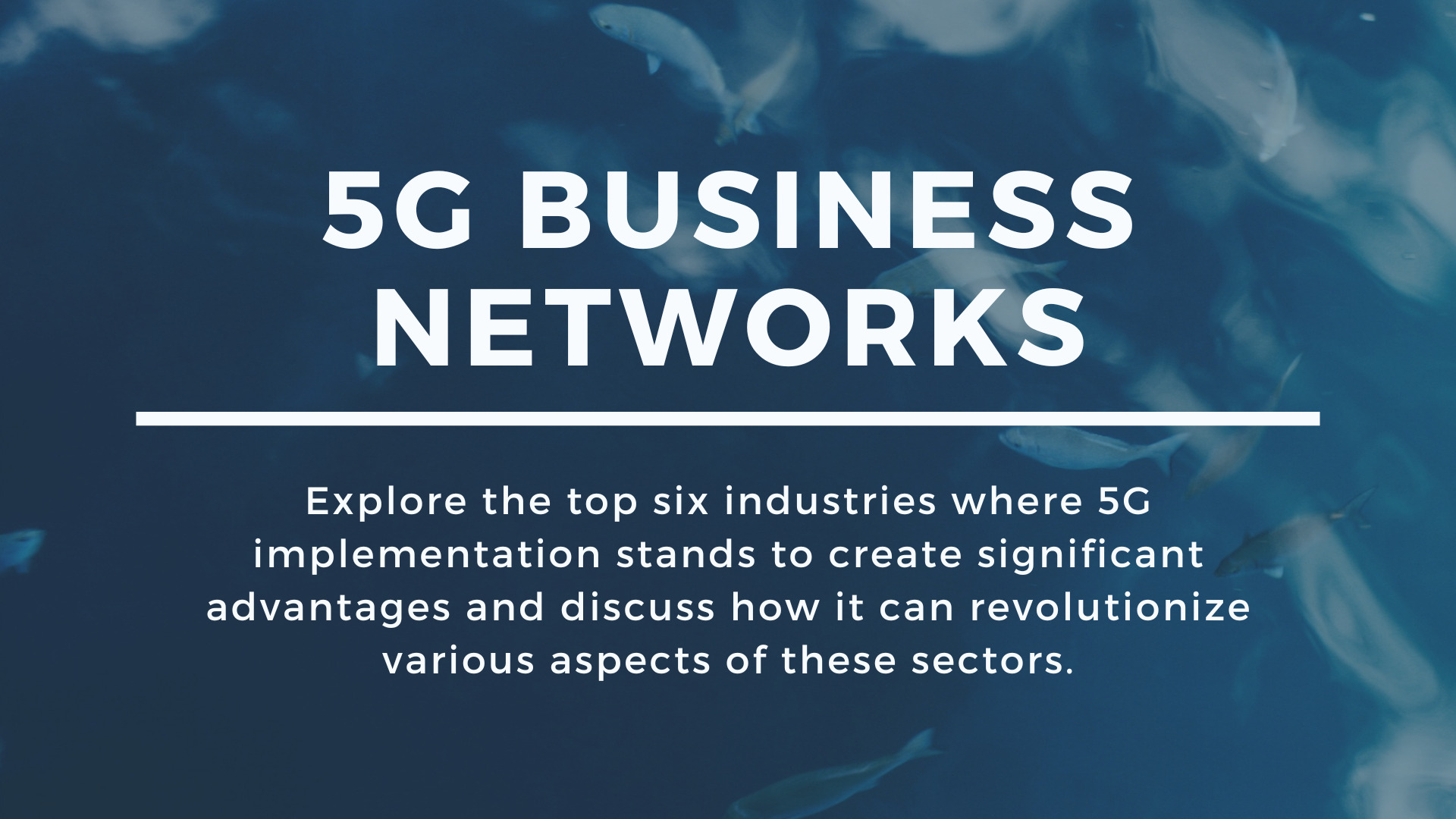The Power of 5G: Six Industries Poised for Transformation
As a business professional, you may have heard about the incredible potential of 5G networks. While you might not be a 5G expert, understanding this groundbreaking technology’s real-world applications and benefits is essential for keeping your business competitive.
This article will explore the top six industries where 5G implementation stands to create significant advantages and discuss how it can revolutionize various aspects of these sectors.

1. Manufacturing: Boosting Efficiency and Streamlining Operations
The manufacturing industry is experiencing a new era of innovation, and 5G technology is set to play a critical role. With its high-speed data transmission and ultra-low latency, 5G allows for real-time control and automation in manufacturing environments. This means increased production efficiency, better quality control, and enhanced employee safety for your business. Additionally, the massive connectivity offered by 5G paves the way for the seamless integration of IoT devices, sensors, and machinery, resulting in improved decision-making and optimal use of resources.
2. Healthcare: Expanding Access and Enhancing Patient Care
The healthcare sector is poised for significant transformation, thanks to 5G connectivity. High-speed, low-latency networks will enable groundbreaking advancements in telemedicine, allowing doctors to conduct remote consultations and even perform surgeries using robotic systems. For your business, this means reaching more patients, delivering better care, and reducing overhead costs. Furthermore, 5G’s ability to support massive IoT deployments will lead to a new generation of wearables and connected devices, enabling remote patient monitoring and personalized treatment plans.
3. Transportation: Streamlining Traffic and Improving Safety
5G technology stands to benefit the transportation industry in numerous ways. Enhanced connectivity will improve communication between autonomous vehicles and their surroundings, making self-driving cars more efficient and safer. This translates to reduced transportation costs, fewer accidents, and lower insurance premiums for your business. Moreover, 5G networks will enable the development of smart traffic infrastructure with real-time traffic data analysis and dynamic traffic management systems. This can reduce congestion and minimize the environmental impact of transportation by optimizing energy consumption.
4. Energy: Optimizing Grids and Promoting Sustainability
The energy sector is set to transform by integrating 5G technology. As renewable energy sources become increasingly important and decentralized power generation gains traction, advanced communication networks are crucial for effective management. With 5G’s ultra-low latency and high reliability, your business can implement smart grids that monitor and control energy production, distribution, and consumption in real time. This will enable better demand-response management, improve grid stability, and enhance the overall efficiency of your energy systems, all while promoting sustainability.
5. Entertainment: Delivering Immersive Experiences and Engaging Content
5G networks are poised to revolutionize the entertainment industry by enabling the delivery of high-quality, immersive experiences such as virtual reality (VR), augmented reality (AR), and 360-degree video. For your business, this means staying ahead of the competition and providing cutting-edge content and experiences for your customers. The ultra-high-speed connectivity offered by 5G allows seamless streaming of data-intensive content, which can lead to the growth of cloud gaming and other on-demand entertainment services. Additionally, 5G technology can enhance live events with real-time analytics, digital enhancements, and personalized content delivery, creating unique and memorable experiences for your audience.
6. Agriculture: Maximizing Productivity and Enhancing Livestock Management
The agricultural sector stands to gain immensely from 5G technology as it enables precision farming and data-driven livestock management. With 5G-powered IoT devices and sensors, your business can monitor soil conditions, crop health, and weather data in real time, leading to better decision-making, reduced waste, and increased productivity. For instance, smart irrigation systems can optimize water usage, saving resources and money, while drone-based monitoring can help detect and address issues early, ensuring higher crop yields.
Moreover, 5G networks can facilitate livestock tracking and health monitoring, improving animal welfare and more efficient farm operations. Real-time data on livestock location, health, and behavior can help you optimize feed consumption, detect diseases early, and manage your herds more effectively. This ultimately results in higher-quality products and greater profitability for your business.
Conclusion
As a business professional, understanding the implications of 5G technology and its potential to transform industries is crucial for staying ahead of the curve. From manufacturing and healthcare to transportation, energy, entertainment, and agriculture, 5G implementation offers tangible benefits that can revolutionize the way companies operate, improve efficiency, and create new growth opportunities. By staying informed about the latest advancements in 5G and considering how this groundbreaking technology can impact your industry, you can ensure that your business remains competitive in an increasingly connected world.




